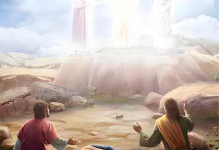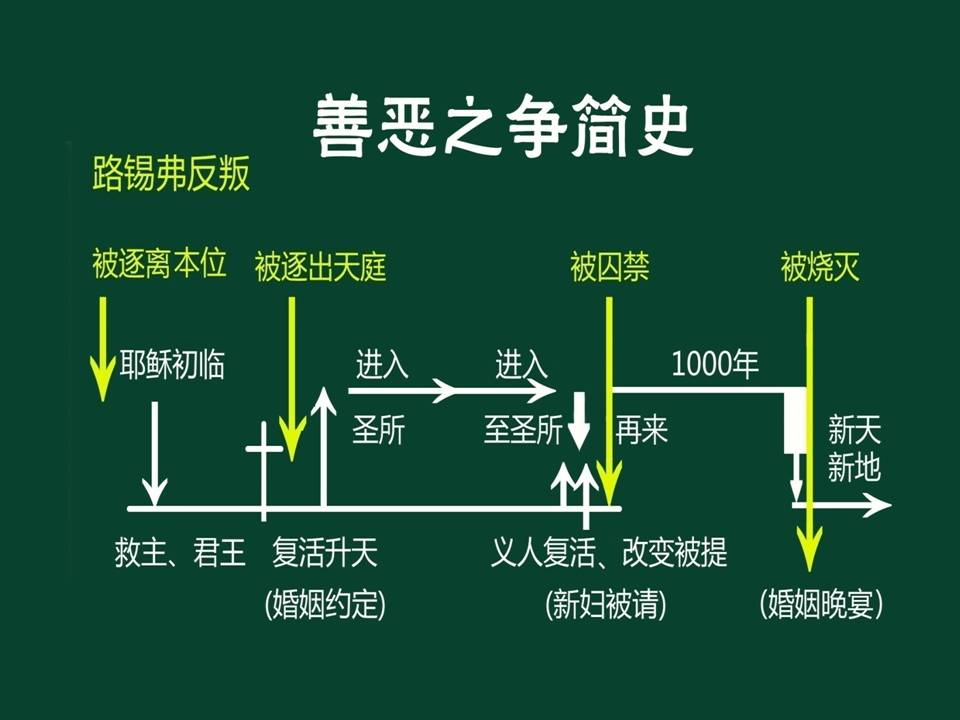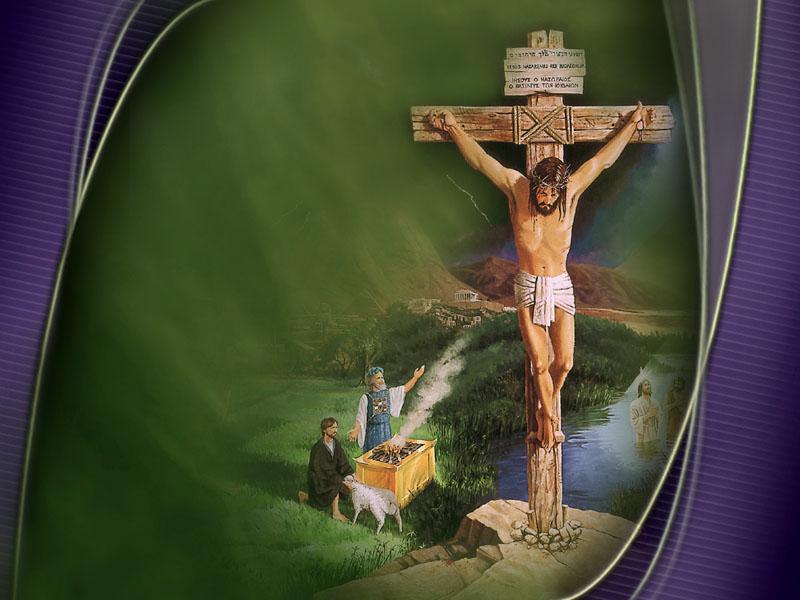
关于基督道成肉身的简明查考(针对几个问题)
(1)While Adam was created sinless, in the likeness of God, Seth, like Cain, inherited the fallen nature of his parents遗传了他父母堕落的本性。
亚当原是照着上帝的形象而造,是没有罪的;而塞特则象该隐一样,承受了他父母堕落之后的性质。
(2)Yet he was a son of Adam like sinful Cain, and inherited from the nature of Adam no more natural goodness than did Cain. He was born in sin;
然而他终究象犯罪的该隐一样,是亚当的儿子,而且从亚当的性格中,并没有继承较比该隐更善良的本性。他原是在罪中生养的,
(3)Adam disobeyed, and entailed sin upon his posterity. But God gave His only begotten Son for the redemption of the race. Christ took on Him the nature of man, and passed over the ground where Adam fell, to be tested and tried as all human beings are tested and tried.
亚当不顺从,把罪恶遗传给了后代。上帝却为救赎人类舍了祂的儿子。基督取了人的本性,经过亚当曾跌倒的境地,受了试验和考验,与所有的人一样。
亚当受造的时候是无罪的,有上帝的形像是指圣洁的本性。罪进入了世界,“堕落的本性fallen nature”的遗传,也表达成亚当的后裔“在罪里in sin”出生,或直接说成亚当把“罪”遗传给了后代。基督为要救赎人类而成为人时,必须“通过pass over”亚当跌倒的境地,这是什么意思呢?他要面对遗传律普遍的影响,他要“承担took”并提拔人类堕落的本性,并在软弱的状况中得胜撒但一切的试探。
“亚当夏娃犯罪之后,……他们的本性已经因罪而败坏了their nature had become depraved by sin”,救赎也就是“上帝使人类从罪的败坏和堕落中,得以恢复的大计划God’s great plan of man’s recovery from the ruin and degradation of sin”。请看下文:
(4)Think of Christ’s humiliation. He took upon himself fallen, suffering human nature, degraded and defiled by sin. He took our sorrows, bearing our grief and shame. He endured all the temptations wherewith man is beset. He united humanity with divinity: a divine spirit dwelt in a temple of flesh. He united himself with the temple. “The Word was made flesh, and dwelt among us,” because by so doing he could associate with the sinful, sorrowing sons and daughters of Adam.
思想基督的谦卑。他亲自取了堕落的,受苦的,因罪退化的和被玷污的人性。他担当了我们的忧患,忍受我们的悲伤和羞辱。他经受了困扰人类的一切诱惑。他用神性联合人性:神圣的灵住在肉身的殿中。他亲自和这殿联合。“道成了肉身,住在我们中间,”因为如此行他才能和亚当有罪的、忧患的儿女联系。【直译】
(5)Clad in the vestments of humanity, the Son of God came down to the level of those He wished to save. In Him was no guile or sinfulness; He was ever pure and undefiled; yet He took upon Him our sinful nature. Clothing His divinity with humanity that He might associate with fallen humanity,
上帝的儿子披上人性,降格到祂想要拯救之人的水平。在祂里面没有诡诈或罪恶;祂是纯洁无瑕的;但祂披上了我们有罪的本性。用人性披覆了神性,以便与堕落的人类交往。
说基督成为人的时候,他承担了我们人类“堕落的fallen人性”、“有罪的sinful本性”,或者说“被罪玷污的degraded and defiled by sin”、“败坏的depraved”本性。“承担”是什么意思呢?以神性来披戴人性Clothing His divinity with humanity,使人性和神性联合united humanity with divinity,或者说,圣灵住在肉身的殿中a divine spirit dwelt in a temple of flesh。正因为这种神人结合,基督的一生始终表现了完全无罪no guile or sinfulness 、纯洁无玷污ever pure and undefiled。请注意,这里使用了两个反义词defiled与undefiled,前一个词“玷污defiled”描述摆在基督面前的挑战即人类有罪的人性,后一个词“纯洁无玷污undefiled”描述神人联合的结果即耶稣的人性。
- Jesus took upon Himself man’s nature, that He might leave a pattern for humanity, complete, perfect完全的、完美的人性的榜样. He proposes to make us like Himself, true in every purpose, feeling, and thought—true in heart, soul, and life. This is Christianity.Our fallen nature must be purified, ennobled, consecratedby obedience to the truth.
耶稣亲自取了人类的本性,以便为人留下一个完美的榜样。祂想使我们象祂自己,保持每一目的、感情和思想的真诚,保持心灵和生命的真诚。这就是基督教。我们堕落的本性必须藉着顺从真理而被净化、提高、成圣。
亚当夏娃犯罪之后,人类的本性已经因罪而败坏了nature had become depraved by sin,而救赎也就是上帝使人类从有罪的本性中得以恢复recovery from 的大计划。首先,是耶稣取了人类的本性,通过神人联合,成就了或留下了完全、完美人性的模范。然后,使我们像他to make us like Himself,也就是通过人神联合,我们堕落的本性得以净化、提高、成圣。这就是基督教信仰,或“耶稣的真道the faith of Jesus”,罗1:17“这义是本于信,以致于信”,意思是from faith to faith,也就是从基督的神人联合、到我们的人神联合,这就是因信成就义的含义。
- 在基督里面,人性与神性相结合。祂的使命是使人与上帝和好,让有限的与无限联合起来。这是堕落的人类藉着基督宝血的功劳得以提高,与上帝的性情有分的唯一方法。基督取了人性,以便能理解人的试炼、忧苦和所遭遇的一切试探。不了解罪恶的天使,无法体恤人类所受的特别试炼。基督屈尊取了人性,凡事受过试探与我们一样,以便可以知道怎样搭救凡将被试探的人。【201.1】
In Christ were united the human and the divine. His mission was to reconcile God and man, to unite the finite with the infinite. This was the only way in which fallen men could be exalted through the merits of the blood of Christ to be partakers of the divine nature. Taking human nature fitted Christ to understand man’s trials and sorrows, and all the temptations wherewith he is beset. Angels who were unacquainted with sin could not sympathize with man in his peculiar trials. Christ condescended to take man’s nature and was tempted in all points like as we, that He might know how to succor all who should be tempted. {2T 201.1}
这里说,基督神人结合带来的福音,是使堕落的人类fallen men被提拔be exalted,分享神圣的本性the divine nature。人类的堕落是指本性的堕落,被救赎或被提拔是指从堕落的本性到神圣的本性。
大家都知道也经常说,因信心接受圣灵、遵守诫命就是因信称义,但是又说人类有罪的本性不是罪、有罪的本性和软弱的肉身到基督再来才能改变。这是对基督的福音非常隐秘的曲解,是自相矛盾的、不合逻辑的说法。
对福音正确的领受,取决于对基督道成肉身的准确理解。请看下文:
(8)祂既具有人性,就觉得自己需要从父来的力量。祂有特选的祷告之处。祂爱在寂静的山中单独与祂的父交通。祂这样做,圣洁的人性之心灵便坚强起来,以便应付日常的本分及试炼。我们的救主与我们休戚与共,亲自担负我们的需要及软弱。因为祂变成一位请求者,夜夜祈求,追求祂父增援新的力量,获得振作与鼓舞,毅然应付日常的本分与磨难。祂是我们凡事的榜样,是我们在忧患软弱中的弟兄,但祂却没有人的情欲。祂既是无罪的,祂的本性也远避邪恶的事。祂在罪恶的世界中,经受劳苦与折磨。祂的人性使祷告成为一种需要和特权。祂为人类的益处便舍弃了天上的福乐,并选择到这冷漠无情及忘恩负义的世上居住。祂需要全部祂父所预备要给祂的更强的神圣支援及安慰。基督在与祂父交往之中获得安慰及喜乐,在此可卸下那压伤祂心灵的愁苦。祂是一位多受痛苦,常经忧患的人。【2T.201.2】
As the human was upon Him, He felt His need of strength from His Father. He had select places of prayer. He loved to hold communion with His Father in the solitude of the mountain. In this exercise His holy, human soul was strengthened for the duties and trials of the day. Our Saviour identifies Himself with our needs and weaknesses, in that He became a suppliant, a nightly petitioner, seeking from His Father fresh supplies of strength, to come forth invigorated and refreshed, braced for duty and trial. He is our example in all things. He is a brother in our infirmities, but not in possessing like passions. As the sinless One, His nature recoiled from evil. He endured struggles and torture of soul in a world of sin. His humanity made prayer a necessity and privilege. He required all the stronger divine support and comfort which His Father was ready to impart to Him, to Him who had, for the benefit of man, left the joys of heaven and chosen His home in a cold and thankless world. Christ found comfort and joy in communion with His Father. Here He could unburden His heart of the sorrows that were crushing Him. He was a man of sorrows and acquainted with grief. {2T 201.2}
(9)天庭的君王在从事祂的使命时,常常恳切地祷告。祂并不总是去橄榄山,因为祂的门徒已经知道了祂喜爱的退隐之地,而且常常跟随祂。祂选择寂静的夜晚,那时不会有干扰。耶稣能医治人的疾病,也能让死人复活。祂自己就是福气和力量之源。祂甚至斥责风暴,连狂风骤雨也听从祂的吩咐。祂不沾染腐败,远离罪恶;然而祂却祈祷,而且常常大声流泪祷告。祂为门徒祷告,也为自己祷告,从而认同我们的需要,我们的软弱和我们的失败,这些都是人之常情。祂的恳求有力。祂虽无我们人类的情欲和堕落的性情,却同样被软弱所困,在凡事上受了试探与我们一样。耶稣经受了需要祂天父帮助和支持的痛苦。【2T.508.2】
The Majesty of heaven, while engaged in His mission, was often in earnest prayer. He did not always visit Olivet, for His disciples had learned His favorite retreat, and often followed Him. He chose the stillness of night, when there would be no interruption. Jesus could heal the sick and raise the dead. He was Himself a source of blessing and strength. He commanded even the tempests, and they obeyed Him. He was unsullied with corruption, a stranger to sin; yet He prayed, and that often with strong crying and tears. He prayed for His disciples and for Himself, thus identifying Himself with our needs, our weaknesses, and our failings, which are so common with humanity. He was a mighty petitioner, not possessing the passions of our human, fallen natures, but compassed with like infirmities, tempted in all points even as we are. Jesus endured agony which required help and support from His Father. {2T 508.2}
Passions of our human = fallen natures = evil
关于基督,说他也是“在我们的软弱中in our infirmities”,“同样被软弱所困compassed with like infirmities”,但同时说他“没有人的情欲not in possessing like passions”,又进一步解释说,他并不具有“我们人类的情欲”即“堕落的本性”not possessing the passions of our human, fallen natures。
基督道成肉身时,他曾经承担(took过去时)了有罪的人性,是指他接受了这个挑战或困难并加以解决了,并不是说他就一直拥有、具有或者带着(possessing进行时)有罪的本性,就像在十字架上基督承担了我们的罪,是指他接受了人类罪的刑罚、为人类经受了上帝的审判,并不是说他本身有了罪或罪疚感。说基督是无罪的sinless,就是指他的本性远避邪恶His nature recoiled from evil,他神人联合的本性或他的人性是圣洁无罪的。
从这里还可以看到,堕落的本性并不是指肉身的软弱,耶稣不具有前者,但具有后者。软弱的状态,不等于有罪的性质。基督圣洁的心灵,仍然需要上帝的能力来加强力量、不断带来支持和帮助。
有人说有罪的本性就是肉体的软弱,他们这样理解是由于对以下内容的误解:
罗8:3,律法既因肉体软弱,有所不能行的,上帝就差遣自己的儿子,成为罪身的形状,作了赎罪祭,在肉体中定了罪案,For what the law could not do, in that it was weak through the flesh, God sending his own Son in the likeness of sinful flesh, and for sin, condemned sin in the flesh:
要读懂这节经文,这里不是在说“肉体软弱”,而是说因为“肉体”律法是软弱的、无能为力。在肉体中through the flesh,在有罪的本性中in his sinful nature,律法起不了作用。
这里说“律法既因肉体软弱,有所不能行的”,是什么意思呢?律法“不能使人称义,因为人在罪恶的本性中不能遵守律法,it could not justify man, because in his sinful nature he could not keep the law”。有罪的本性,是一个问题。
耶稣“成为罪身的形状”,当然是指耶稣取了人性。一方面,“作了赎罪祭”,“来担当我们的罪He came as the sin-bearer”,“祂用身体担当了罪的咒诅By bearing in His body the curse of sin”。“基督被钉时死去的是祂的人性,神性是不可能沉沦和死亡的it was His human nature that died. Deity did not sink and die”,“人性死了,但神性并没有死。基督在祂的神性里,拥有挣脱死亡束缚的能力Humanity died; divinity did not die. In His divinity, Christ possessed the power to break the bonds of death”。
另一方面,“在肉体中定了罪案condemned sin in the flesh”是什么意思呢?Condemn,定罪,谴责,声讨,有较强的司法意味,侧重从道义或原则上的谴责。我们看另一个英文版本的翻译:
[bbe] For what the law was not able to do because it was feeble through the flesh, God, sending his Son in the image of the evil flesh, and as an offering for sin, gave his decision against sin in the flesh:
“在肉体中定了罪案”就是“gave his decision against sin in the flesh在肉体中作出了他反对罪的决定或决议”。
也就是说,耶稣承担了人类有罪的本性,神性和人性的联合必须战胜这个问题,同时,尽管人性的软弱,神性和人性的联合必须战胜所有试探,这样,耶稣带着肉身却成就了无罪的人性,这就是在肉身中给出了反对罪的决议、胜过罪的榜样。耶稣神人联合的榜样,成了我们得救的根源,只要我们“不随从肉体、只随从圣灵”。
(10)God has given to the world and to angels the evidence of the changeless character of His love. He would part with His only begotten Son, send Him into the world, clothed in the likeness of sinful flesh, to condemn sin and to die upon Calvary’s cross to make it manifest to men that there is provision in the counsels of heaven for those who believe in Christ, to keep the commandments of God. Aside from Christ, man cannot in spirit and in truth keep one of the commandments of God, but in Christ Jesus the claims of the law are met, because He transforms the nature of man by His grace, creates in the heart a new spiritual life, implants a holy nature, and men become Christlike in character.
上帝已赐给世人和天使证据,证明祂爱的不变性。祂宁愿舍弃祂的独生子,差祂进入世界,披上罪身的形状,定了罪案并且死在髑髅地的十字架上,好向人们显明在天上的议会中为那些信靠基督的人有准备,好使他们遵守上帝的诫命。离开基督,人无法以心灵和诚实遵守上帝的一条诫命,然而在基督耶稣里律法的要求得到了满足,因为祂用祂的恩典改变人性,在人内心造成一种新的属灵生命,栽培一种圣洁的本性,人在品格上就变得像基督了。
(11)耶稣曾说:“这世界的王将到;他在我里面是毫无所有。”(约14:30)在他里面,没有丝毫意念是能受撒但诱惑的。他绝不屈服于罪恶,甚至连一点向试探让步的意思也没有。我们也能如此。基督的人性是与神性联合起来的,有圣灵住在他里面,使他武装起来去应付斗争。而且他来,是要使我们与上帝的神性有份。只要我们因信与他联合,罪恶就再不能作我们的主。上帝牵着我们信心的手,使它紧紧握住基督的神性,使我们的品格能达到完全。
“The prince of this world cometh,” said Jesus, “and hath nothing in Me.” John 14:30. There was in Him nothing that responded to Satan’s sophistry. He did not consent to sin. Not even by a thought did He yield to temptation. So it may be with us. Christ’s humanity was united with divinity; He was fitted for the conflict by the indwelling of the Holy Spirit. And He came to make us partakers of the divine nature. So long as we are united to Him by faith, sin has no more dominion over us. God reaches for the hand of faith in us to direct it to lay fast hold upon the divinity of Christ, that we may attain to perfection of character.{DA 123.3}
圣灵住在基督里面,使他武装起来得胜撒但,在他里面对撒但的诡辩毫无响应。同样,我们握住基督的神性,分享他神圣的本性,达到品格的完全。在恩门关闭后的大患难中,义人们和基督一样不给撒但留任何余地,他们当然和基督一样是靠圣灵武装起来应付斗争。
在大患难时期,圣灵也从义人身上收回了、上帝不再听义人的祷告了、也不再使用他们了,这是违背福音基本原理的说法。但是,的确值得强调的是,在恩典时期悔改和圣灵感化的经验和恩门关闭之后大患难中义人的经验有所不同,简而言之,他们经历了罪的涂抹,那时已想不起自己犯过的罪了,他们面对逼迫和试探也不再失败。
(12)基督忍受着最剧烈的饥饿,这个试探很严重。但祂必须从毁灭开始的地方着手救赎的工作。亚当曾在食欲上失败,基督必须在这里得胜。那降在祂身上的能力直接来自天父,而祂务必不可为自己运用那能力。在那次长期禁食中祂体验到了唯有上帝才能赐予的力量和能力。祂用“耶和华如此说”的力量对付并抗拒了试探。祂说:“人活着,不是单靠食物,乃是靠上帝口里所出的一切话”(太4:4)。{3SM 128.4}
Christ was suffering the keenest pangs of hunger, and this temptation was a severe one. But He must begin the work of redemption just where the ruin began. Adam had failed on the point of appetite, and Christ must conquer here. The power that rested upon Him came directly from the Father, and He must not exercise it in His own behalf. With that long fast there was woven into His experience a strength and power that God alone could give. He met and resisted the enemy in the strength of a “Thus saith the Lord.” “Man shall not live by bread alone,” He said, “but by every word that proceedeth out of the mouth of God” (Verse 4). {3SM 128.4}
“祂务必不可为自己运用那能力”,是指耶稣在旷野受试探的时候不能依靠圣灵的能力而单凭自己的人性奋斗吗?如果这样理解,就是得出了和原意刚好相反的结论,也许理解力有待提高。如果读怀著经常得出相反的理解,这种状态就需要深刻反省了。圣灵以话语为媒介工作,没有圣灵的光照,话语也会被曲解,单凭人的理智是不可靠的。至于这段话的准确理解,不必赘言。
最后,有人推究“罪、罪孽、罪愆、过犯、恶”这些词的差异,我们来看诗篇51篇,请特别注意平行的表达所作的相互解释:
1 上帝啊,求你按你的慈爱怜恤我!按你丰盛的慈悲涂抹我的过犯transgressions/sin!
2 求你将我的罪孽iniquity/wrongdoing洗除净尽,并洁除我的罪sin/evil!
3 因为我知道我的过犯transgressions/error;我的罪sin常在我面前。
4 我向你犯罪sinned,惟独得罪Against了你;在你眼前行了这恶done this evil ,以致你责备我的时候显为公义,判断我的时候显为清正。
5 我是在罪孽in iniquity/in evil/sinful at birth里生的,在我母亲怀胎的时候就有了罪in sin /sinful from the time 。
6 你所喜爱的是内里诚实;你在我隐密处,必使我得智慧。
7 求你用牛膝草洁净我,我就干净;求你洗涤我,我就比雪更白。
8 求你使我得听欢喜快乐的声音,使你所压伤的骨头可以踊跃。9 求你掩面不看我的罪sins/wrongdoing,涂抹我一切的罪孽iniquities/sins。
来8:10-12,主又说:那些日子以后,我与以色列家所立的约乃是这样:我要将我的律法放在他们里面,写在他们心上;我要作他们的上帝;他们要作我的子民。……我要宽恕他们的不义unrighteousness/wickedness/evil-doing,不再记念他们的罪愆their sins and their iniquities/their sins and their lawlessnesses(lawless deeds)/their sins。
来10:16-18,主说:那些日子以后,我与他们所立的约乃是这样:我要将我的律法写在他们心上,又要放在他们的里面。以后就说:我不再记念他们的罪愆和他们的过犯sins and iniquities/and lawless acts/and their misdeeds/and of their evil-doings。这些(罪过)these既已赦免,就不用再为罪sin献祭了。
单单从以上的经文,我们可以看到罪孽、罪恶、过犯都属于罪的范畴,都要得到赦免、洁净和涂抹。罪孽,侧重有罪的本性,这是罪的根源;罪恶,包括内在的思想,上帝更监察人的内心;过犯,表达作恶的行为,这是罪外在的表现。从本性、到意念、到行为,都必须在恩典当中更新变化。
罪的后果,到新天新地才能完全清除;罪的责任,涉及多方面,最终要追究到撒但头上;罪的刑罚,要么被救主担当,要么由自己承担。就基督的救赎这个意义来说,罪孽、罪恶、罪愆和过犯、恶行或错言错行,归根到底都是罪。
说有罪的本性不是罪,这不仅是对基督的福音的歪曲,更是逻辑上的自相矛盾,和哲学上的诡辩“白马非马”论毫无二致。
圣所制度中,燔祭,把祭牲的头和腿割下,全身切成块子,把内脏都拿出来清洗,这表达了从思想到行为、从内在到外在的全部范畴。在赎罪祭中,是特别追究到里面的脂油来代表罪,放在燔祭坛上烧掉,这是突出罪的根源;把血弹在圣所的幔子上,这样把悔改之人的罪转移到圣所,在这里,有罪的血来代表罪,罪之所以带来死亡,是因为罪污染了生命的血液。相反,在赎罪大日,要用无罪的血来遮掩罪、来涂抹罪,这正是象征本性的更新,正如血液健康了,全身就健康了。






















